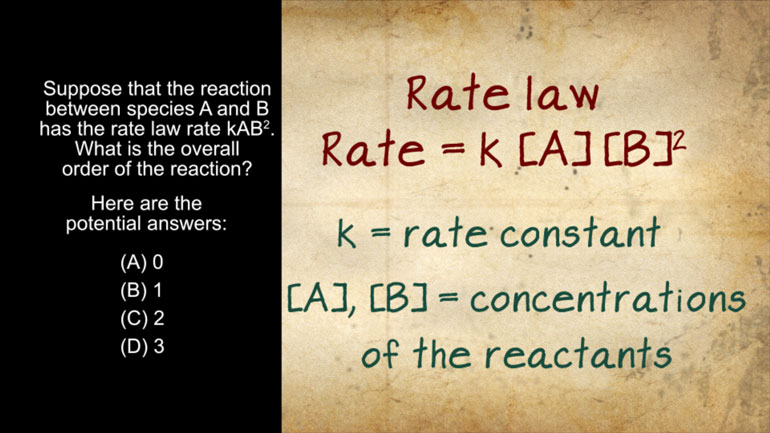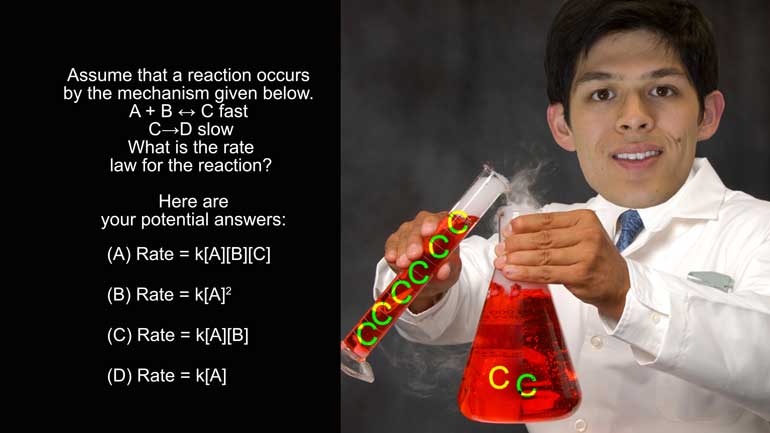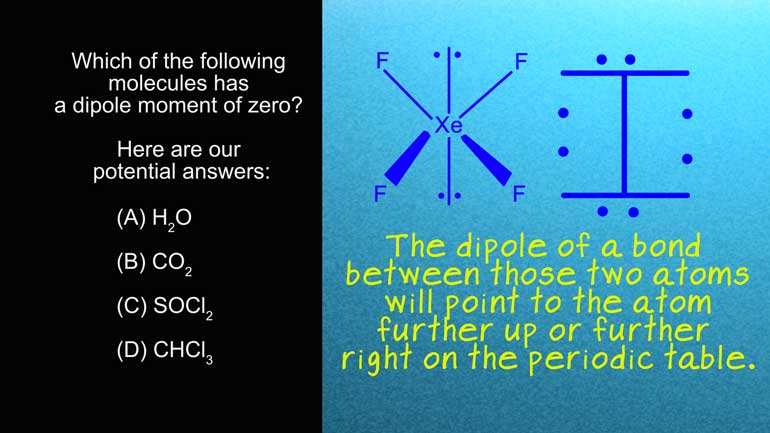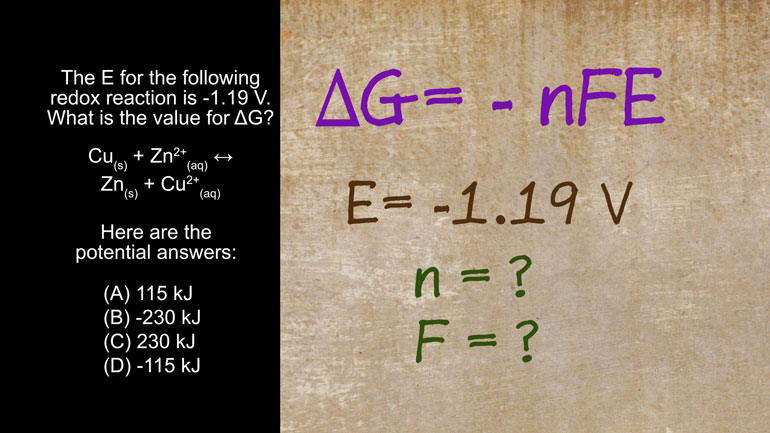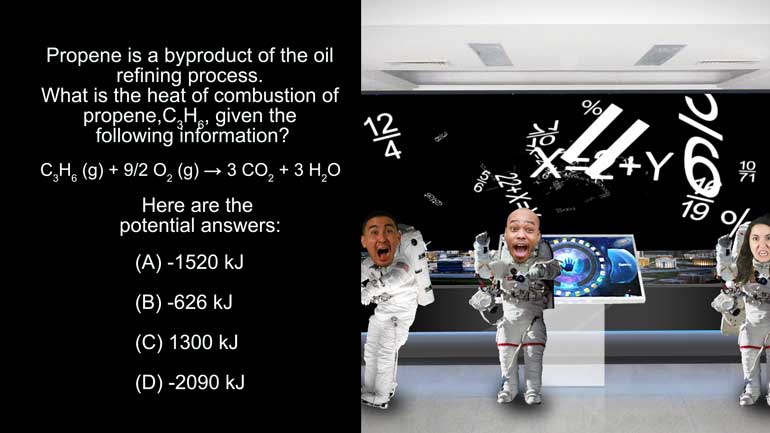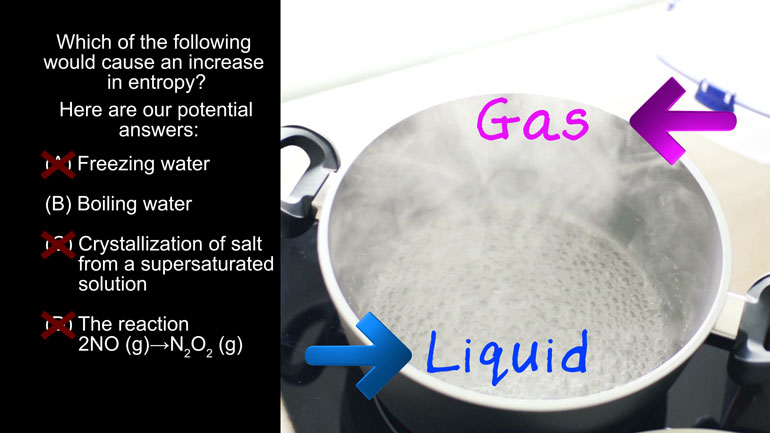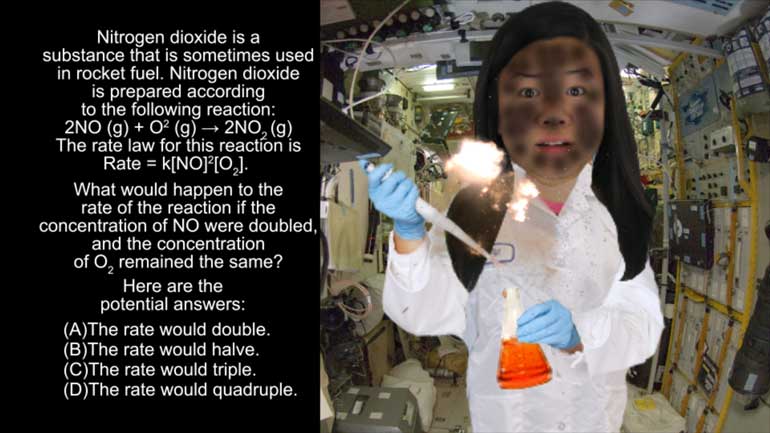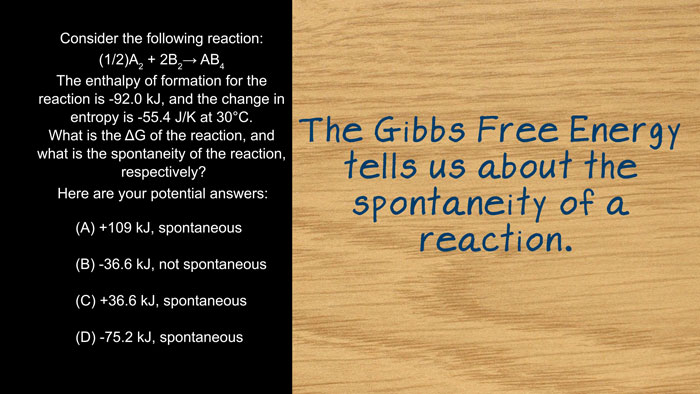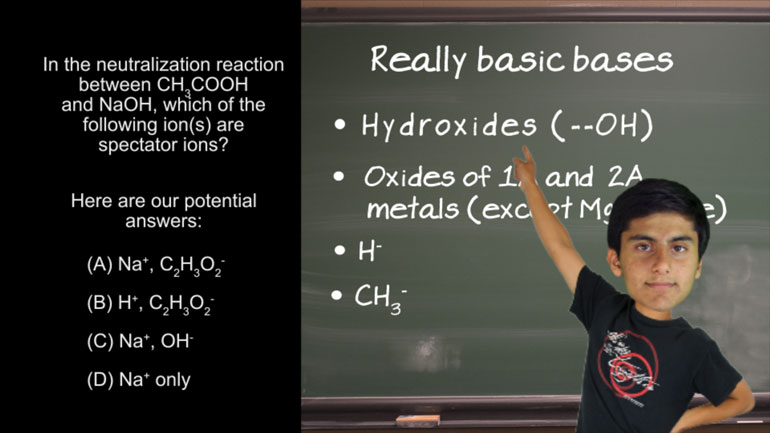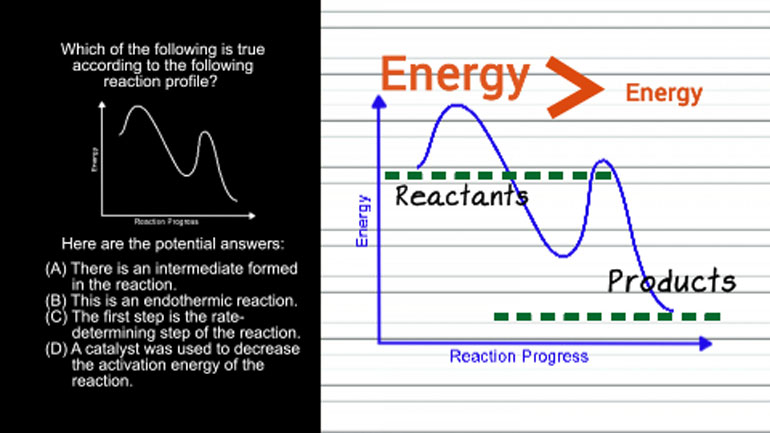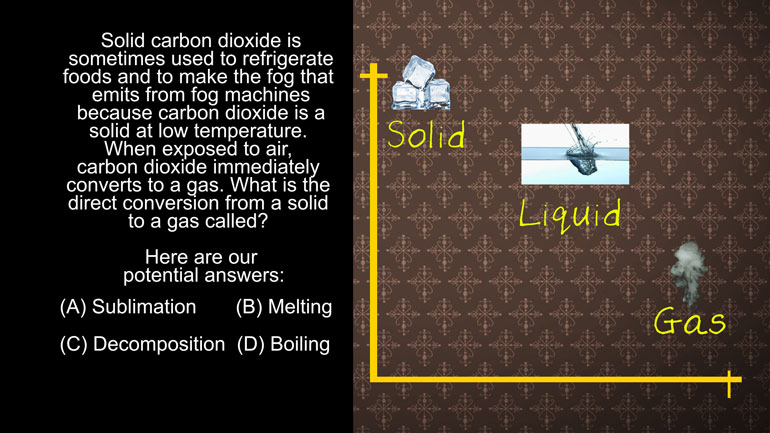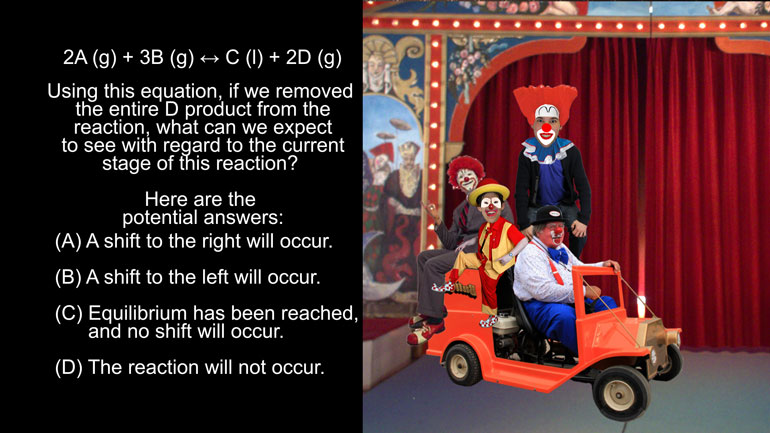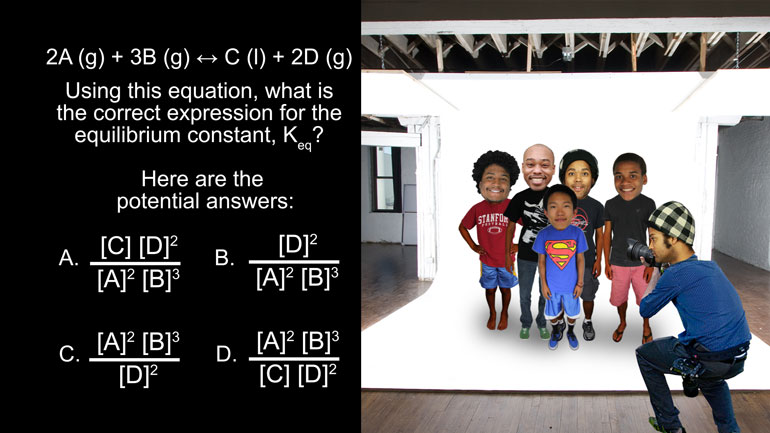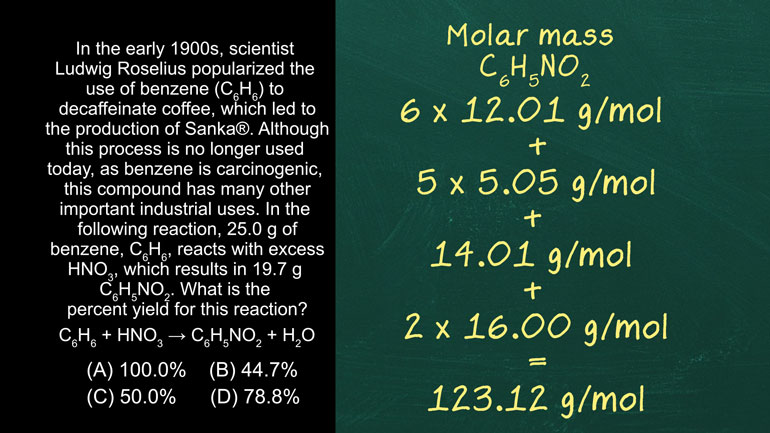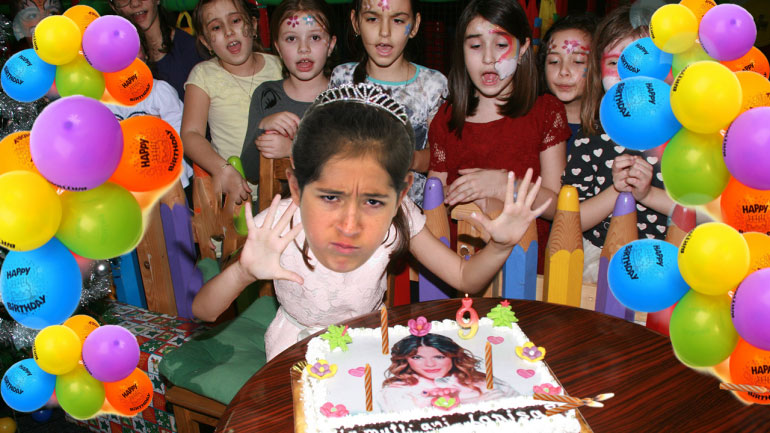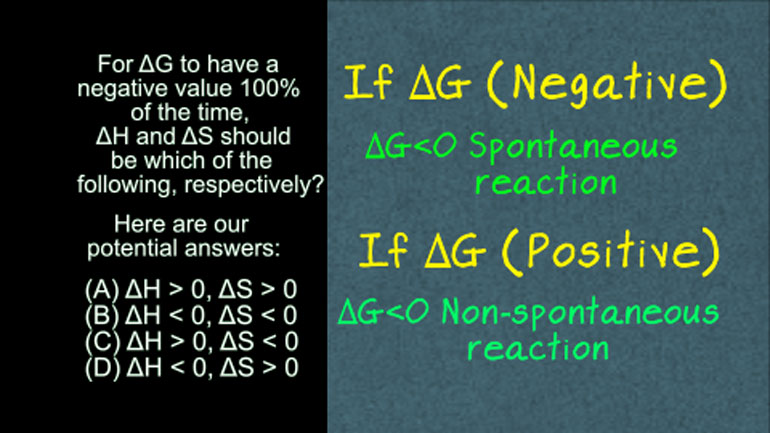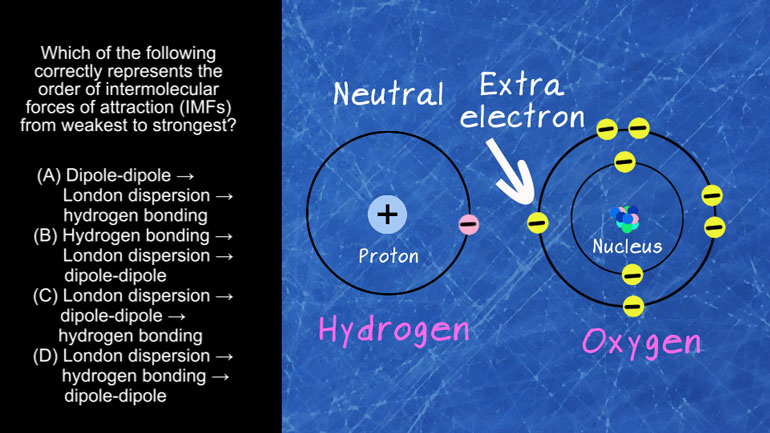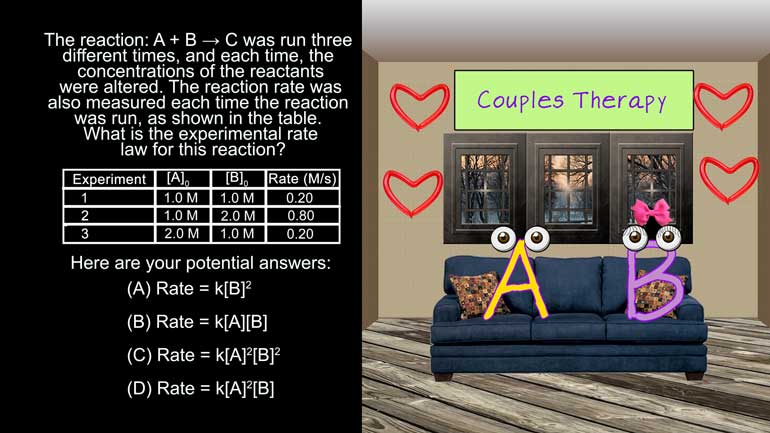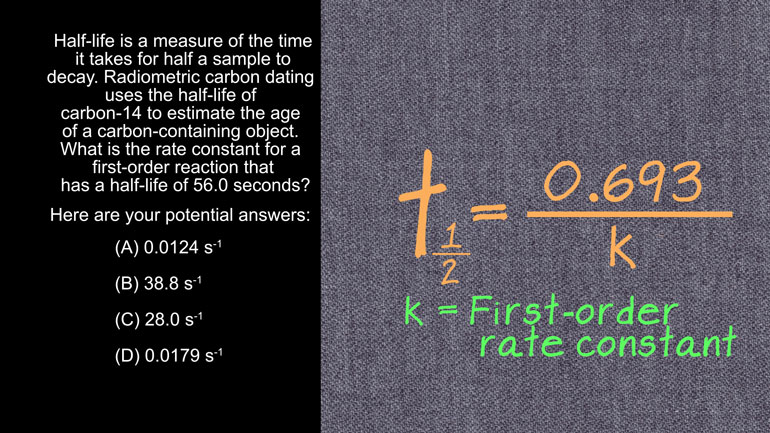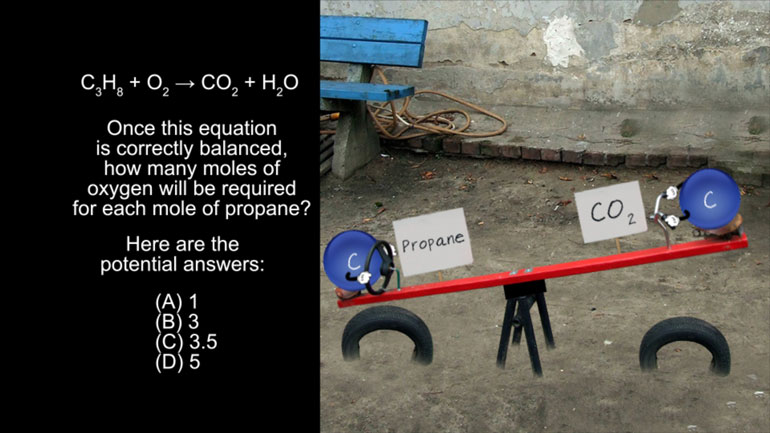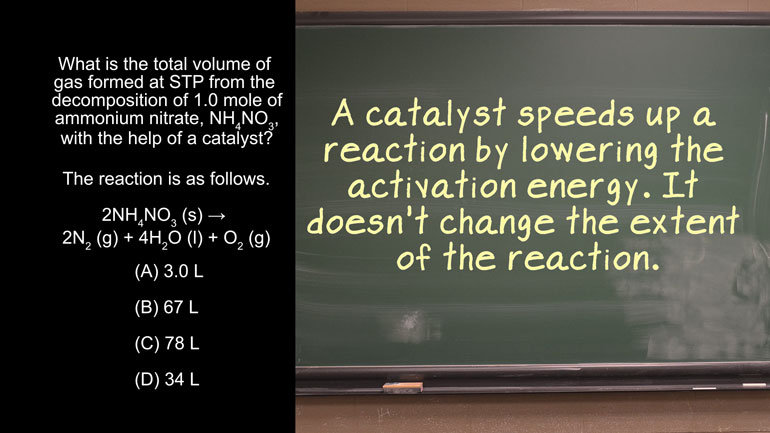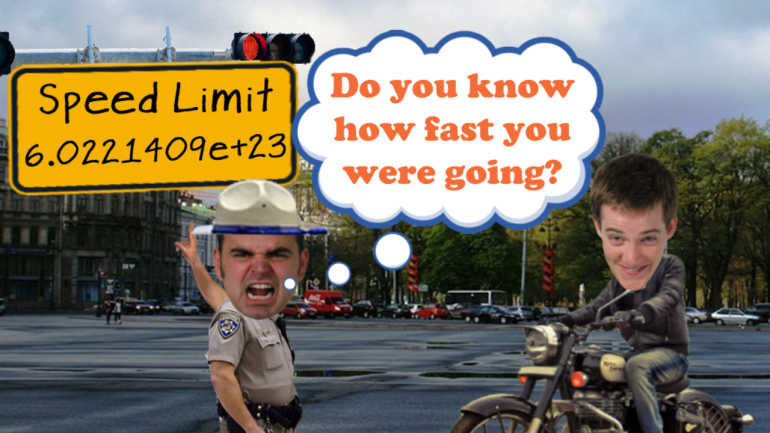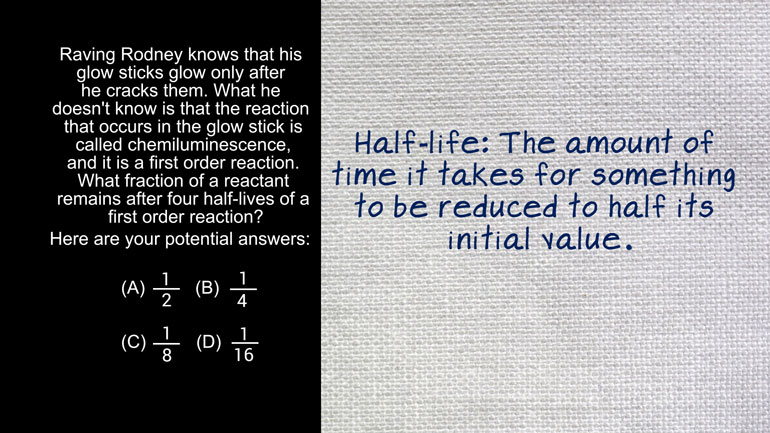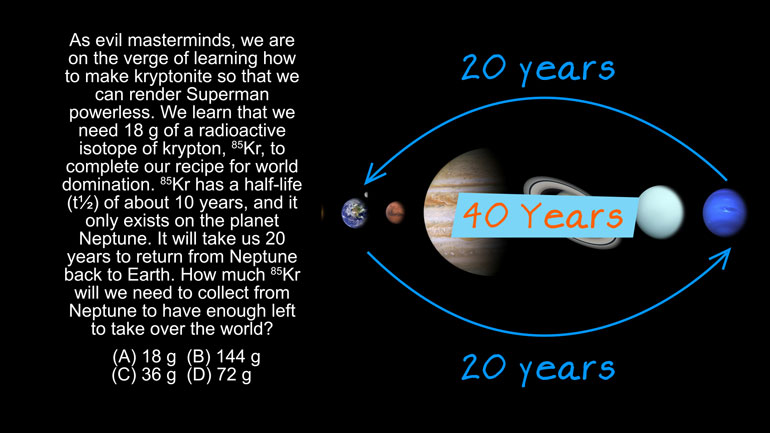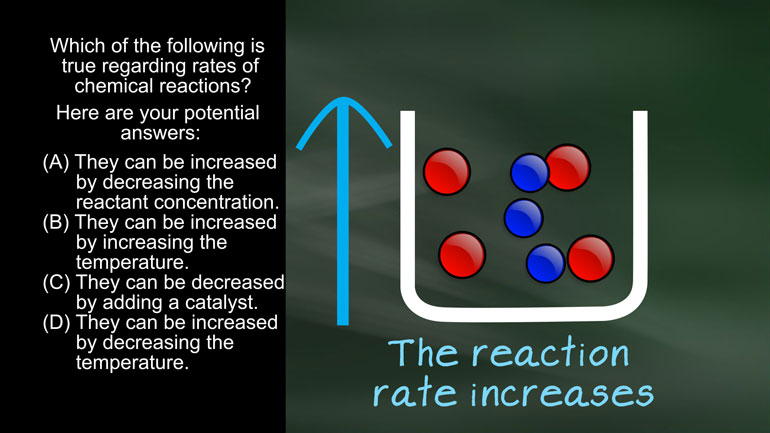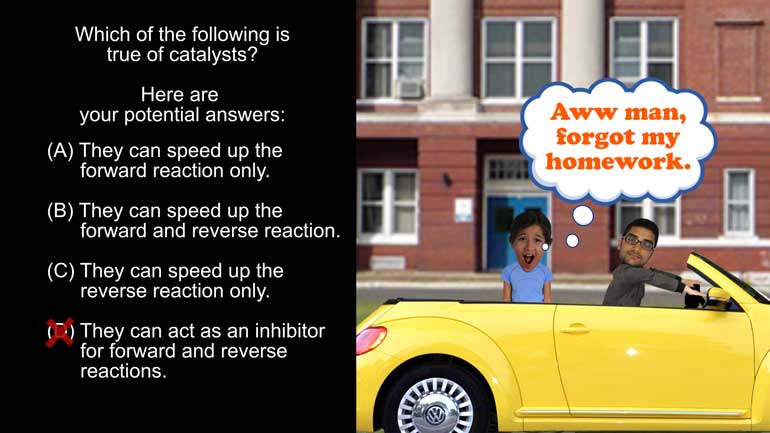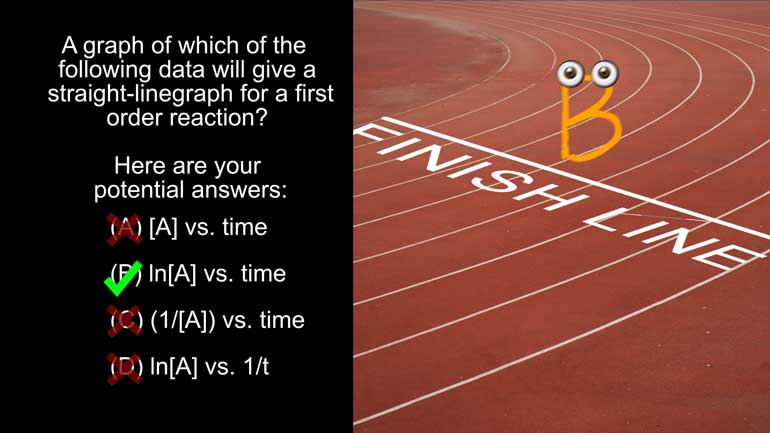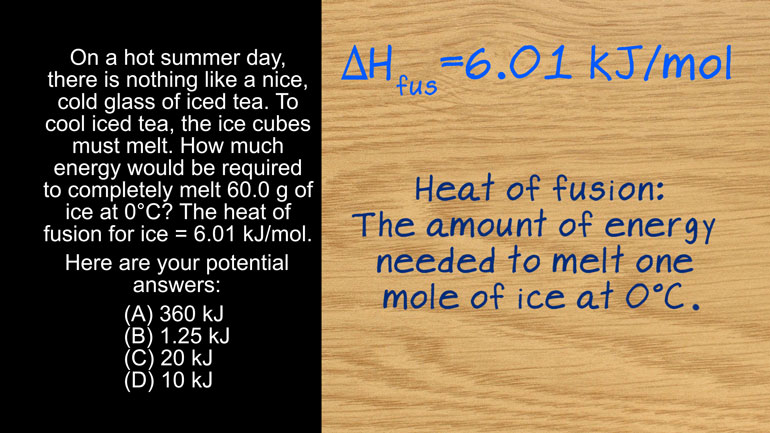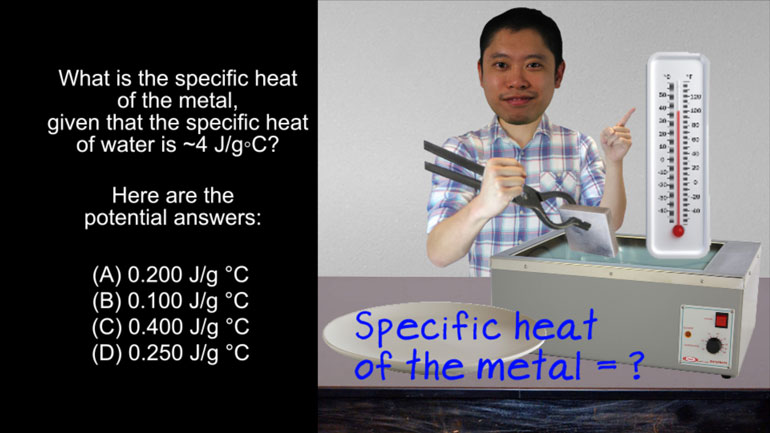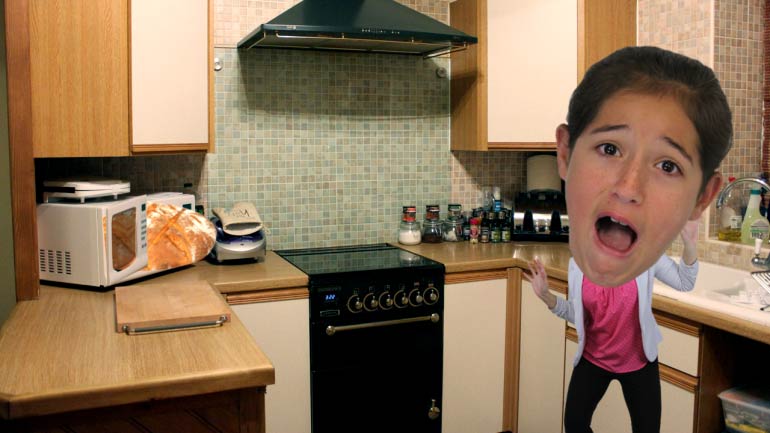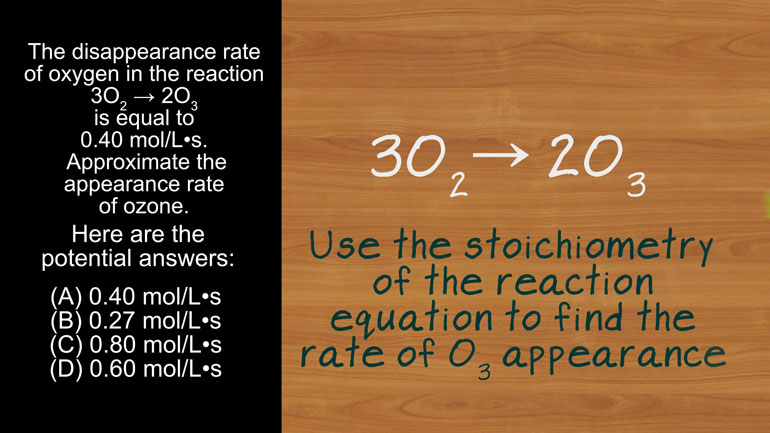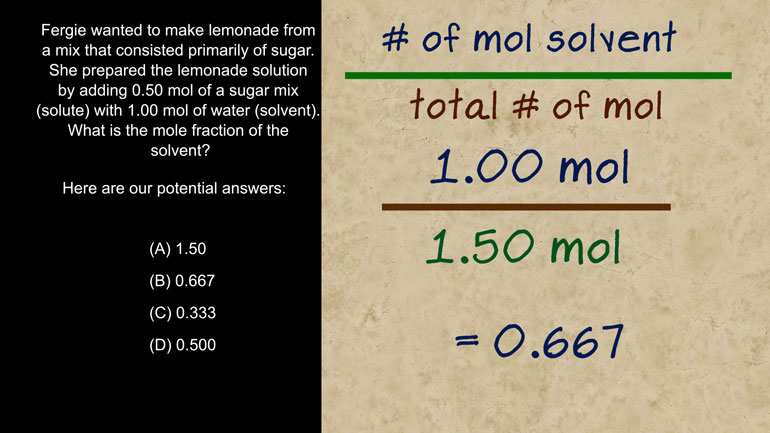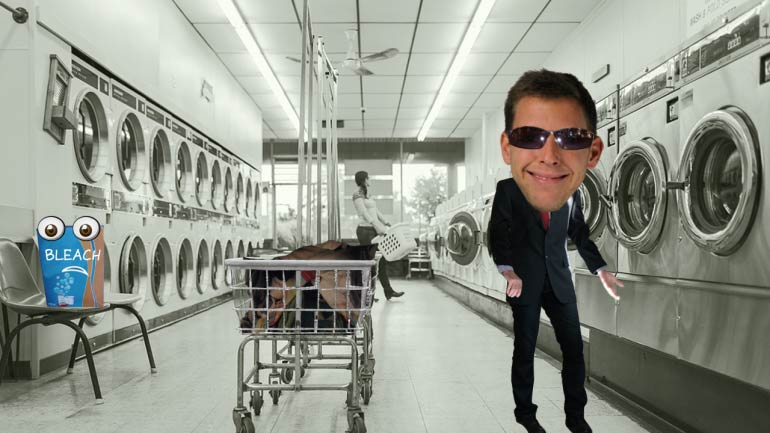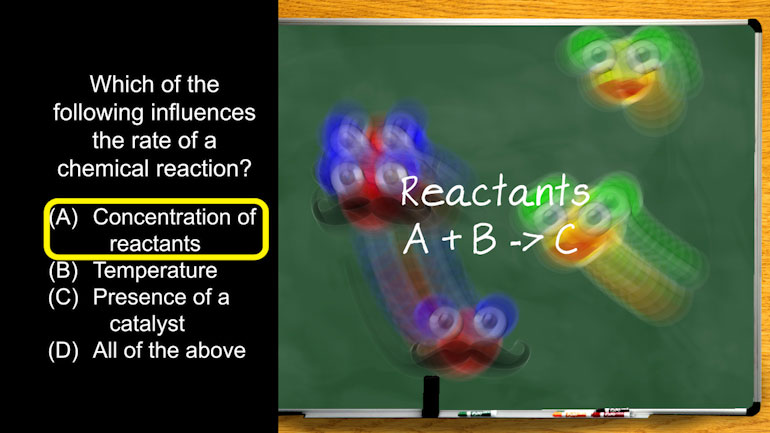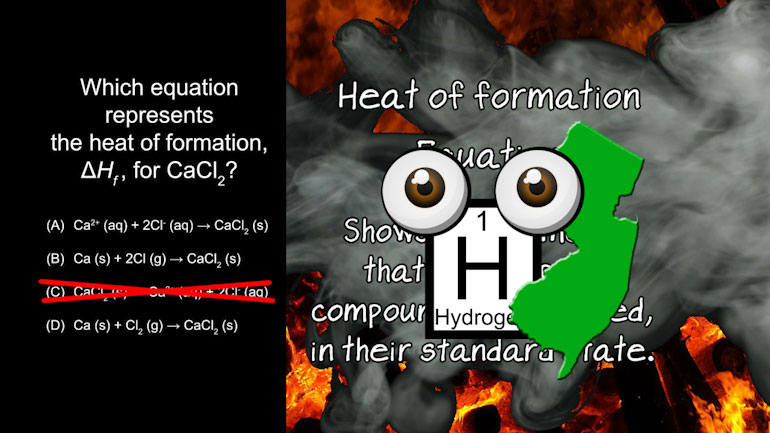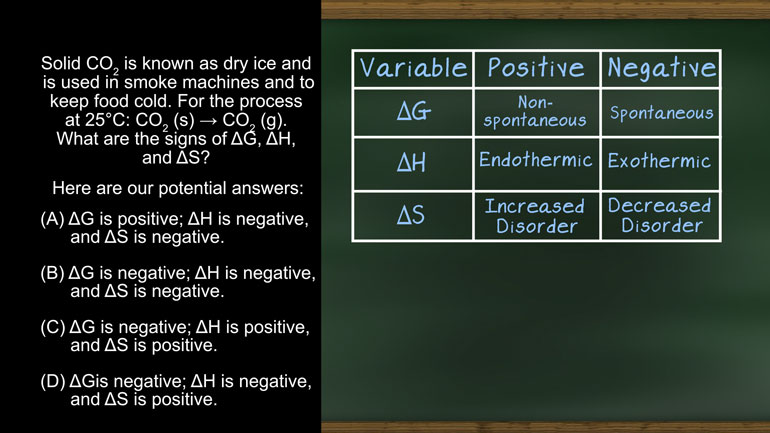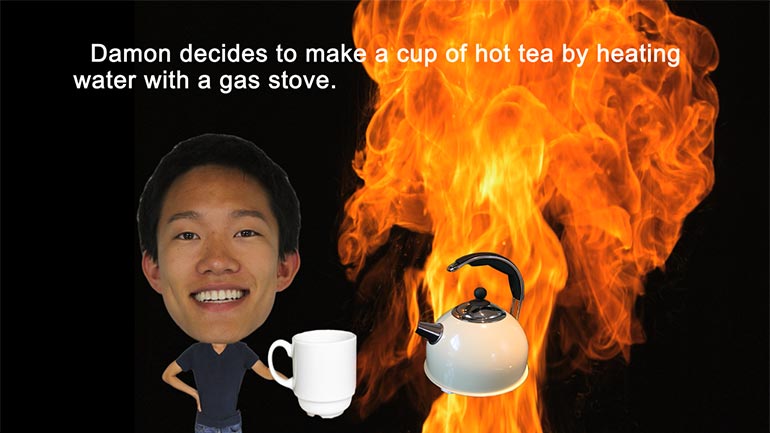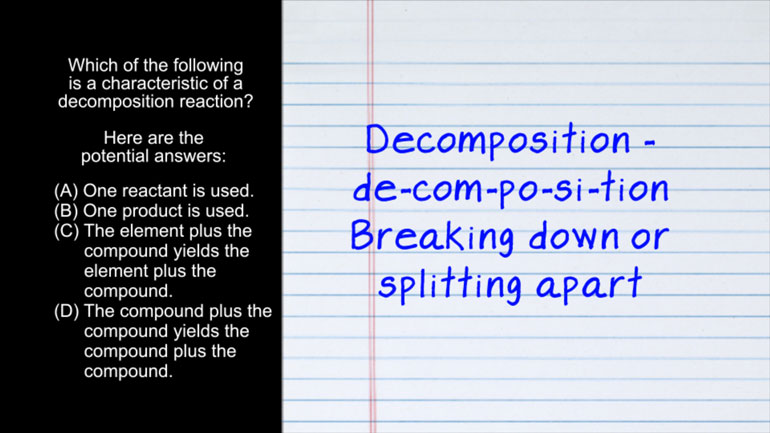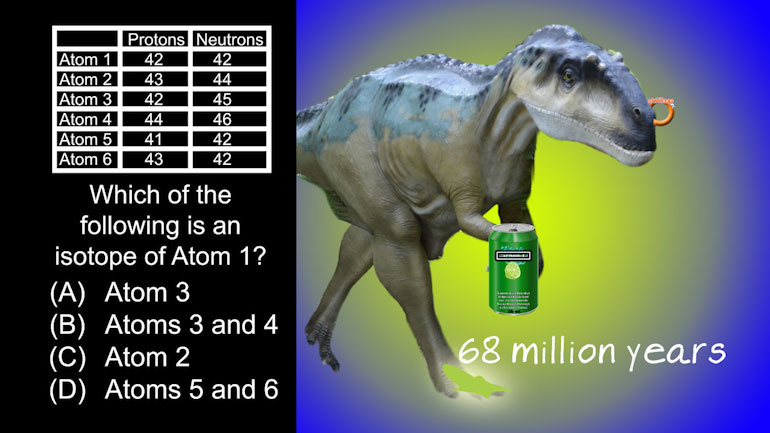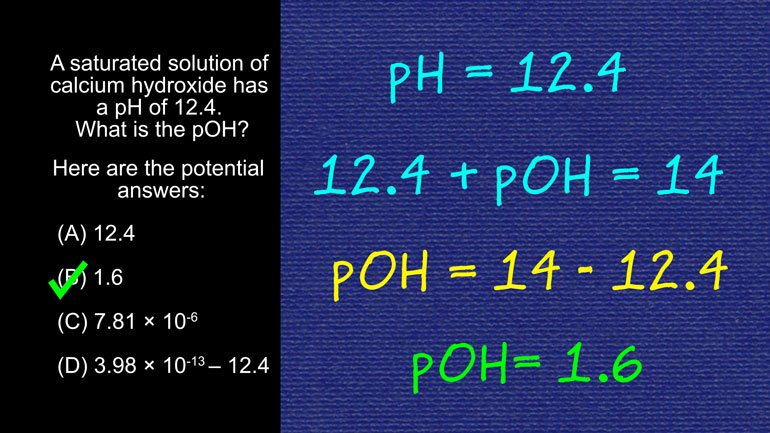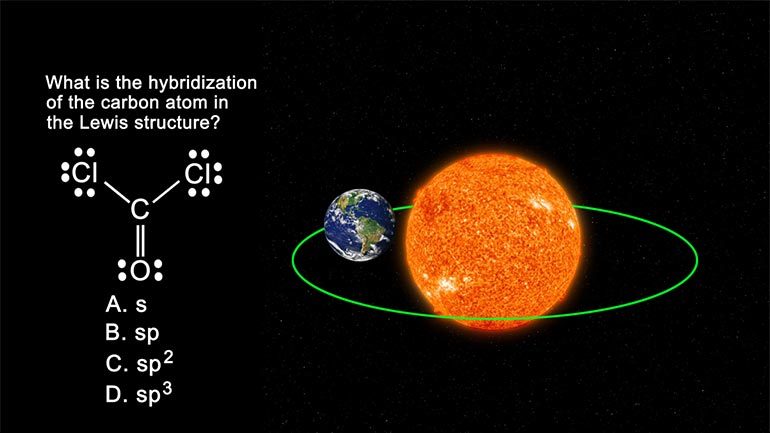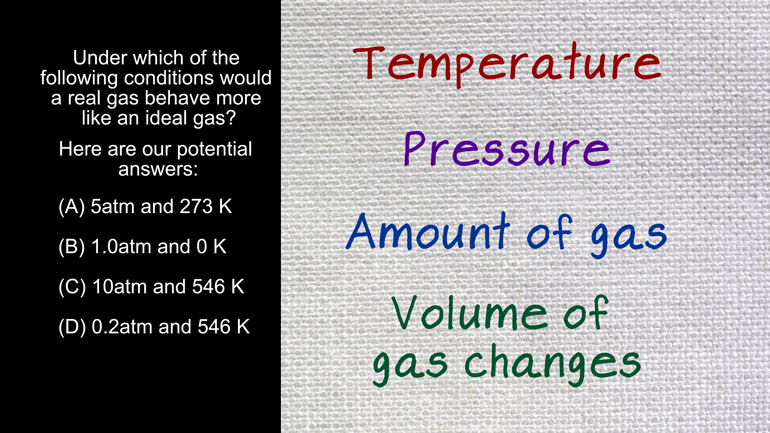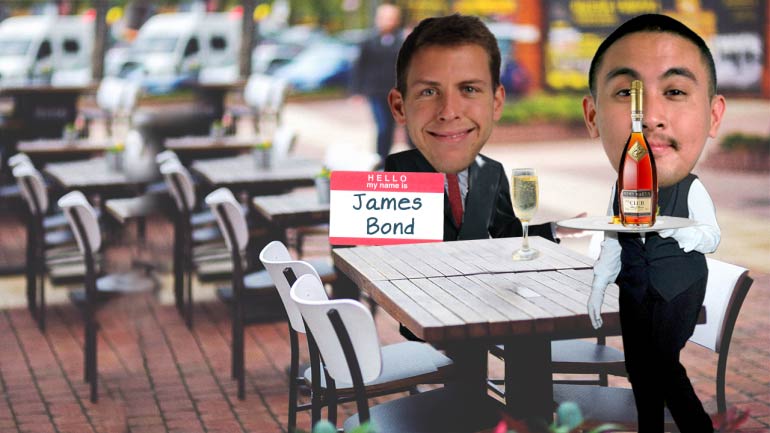ShmoopTube
Where Monty Python meets your 10th grade teacher.
Search Thousands of Shmoop Videos
AP Chemistry Videos 54 videos
AP Chemistry 1.3 Chemical Reaction Rates. What is the overall order of the reaction?
AP Chemistry 1.4 Chemical Reaction Rates. What are the correct units for a second order rate constant?
AP Chemistry 1.5 Chemical Reaction Rates. What is the rate law for the reaction?
AP Chemistry 1.5 Rearrangements and Reorganization of Atoms 6 Views
Share It!
Description:
AP Chemistry 1.5 Rearrangements and Reorganization of Atoms. What is the total volume of gas formed at STP from the decomposition of 1.0 mole od ammonium nitrate, NH 4 NO 3 , with the help of a catalyst?
Transcript
- 00:03
Here’s your Shmoop du jour, brought to you by decomposition, like when you burn your [Banana going rotten]
- 00:09
lab notes at the end of the year. [Kid burning his notebook]
- 00:12
Here’s today’s question:
- 00:14
What is the total volume of gas formed at STP from the decomposition of 1.0 mole of
- 00:19
ammonium nitrate, NH4NO3, with the help of a catalyst?
Full Transcript
- 00:24
The reaction is as shown on the screen. [The formula appears]
- 00:28
And here are your potential answers: Wait?
- 00:31
Catalyst?
- 00:32
Where’s the catalyst? [Cat holding a piece of paper that says list]
- 00:34
Why would they mention a catalyst and not give us any information about the catalyst? [Scientist picking up different coloured liquids looking confused]
- 00:38
Or, well, it’s a trick question.
- 00:41
The catalyst, or lack thereof, doesn’t affect the answer at all people. [Catalyst looking unhappy]
- 00:44
A catalyst just speeds up a reaction by lowering the activation energy.
- 00:49
It doesn’t change the extent of the reaction.
- 00:52
That uncool distraction aside, what the question is really asking is how much gas stuff is [Gas coming out of a flask]
- 00:57
formed in the reaction. [The flask looks embarrassed]
- 00:59
Anytime you’re asked how much stuff there is, your immediate thought should be “what
- 01:02
is that in moles?” [A mole lying on a scale]
- 01:04
And then your next thought should be, “when’s lunch?” [Guy holds his rumbling stomach]
- 01:07
So how many moles of gas are formed in the reaction?
- 01:10
We know from the equation that for every 2 moles of ammonium nitrate we put in, we get
- 01:14
2 moles of nitrogen gas and 1 mole of oxygen gas out. [The products are highlighted]
- 01:18
We don’t care about the water because it’s a liquid, and the question is all about gas. [Water looks sad and the gas looks happy]
- 01:22
So since we’re only putting 1 mole of ammonium nitrate in, we’ll get half of what we would
- 01:27
from 2 moles, which means 1 mole of nitrogen gas and 0.5 moles oxygen gas for a total of
- 01:34
1.5 moles of gas.
- 01:37
But put on the brakes, we’re not done yet. [Car brakes quickly]
- 01:38
The question asked for volume.
- 01:40
So how are we going to figure out volume if we can’t just pick up the remote and change [Woman shaking a flask at the TV]
- 01:44
it?
- 01:45
Well, the question specified that the conditions are “STP.”
- 01:48
Unfortunately, that doesn’t stand for “super tiny puppy.” [A puppy small enough to fit in the palm of a hand]
- 01:52
STP is Standard Temperature and Pressure.
- 01:55
You should know going into your test that one mole of gas occupies 22.4 liters at STP.
- 02:01
So we multiply 22.4 by the 1.5 moles of gas we have to get 33.6 Liters of gas.
- 02:08
Which is actually 34 because of the whole weird science magic of significant figures. [Guy holding a book of significant figures and smiling]
- 02:12
We don’t even have time to get into that right now.
- 02:14
So that means that D is the correct answer.
- 02:17
Now where was that remote? [Woman finds the TV remote]
- 02:19
We heard the super tiny puppy bowl was on. [Tiny puppies playing football]
Related Videos
AP Chemistry 1.3 Chemical Reaction Rates. What is the overall order of the reaction?
AP Chemistry 1.4 Chemical Reaction Rates. What are the correct units for a second order rate constant?
AP Chemistry 1.5 Chemical Reaction Rates. What is the rate law for the reaction?
AP Chemistry 3.2 Laws of Thermodynamics. What is the value for ΔG?
